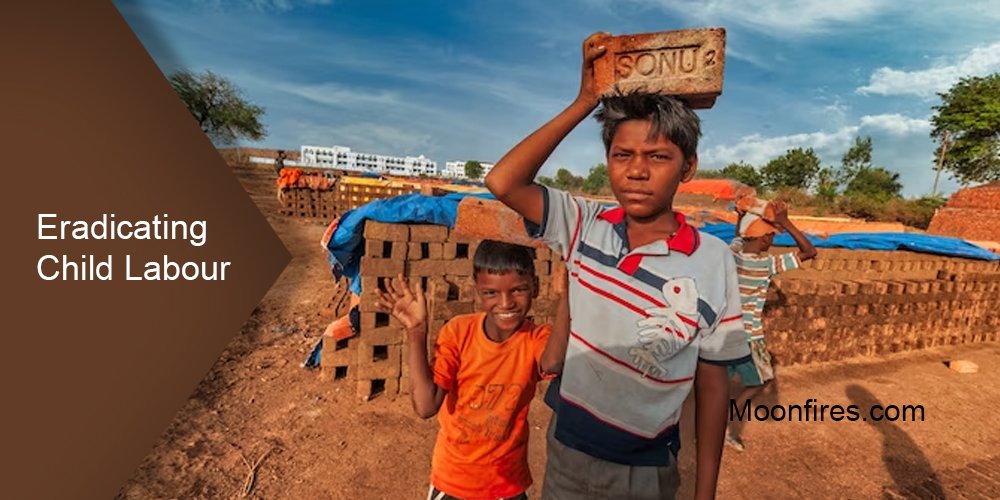Child labour is a pervasive and pressing issue that continues to plague societies globally. It refers to the employment of children in any form of work that deprives them of their childhood, education, potential, and dignity, ultimately harming their physical and mental development. This practice is a violation of fundamental human rights, impeding the growth and well-being of children.
Firstly, one of the primary reasons for child labour is poverty. Many families, especially in developing countries, live in poverty, forcing children to work in order to supplement family income. These children often take up jobs in hazardous conditions, such as in factories, mines, agriculture, and domestic service, subjecting them to physical, emotional, and psychological harm.

Moreover, lack of access to quality education is another contributing factor to child labour. When children do not have the opportunity to attend school due to financial constraints or inadequate educational facilities, they are more likely to engage in laborious activities to support their families. The absence of education perpetuates a cycle where children remain trapped in low-paying, exploitative work.
Furthermore, the exploitation of children in the workforce not only robs them of their childhood but also hampers their overall development. Engaging in strenuous and often dangerous work at a young age can lead to physical injuries, health issues, and stunted growth. Additionally, these children are deprived of the chance to acquire skills, hindering their potential for future employment opportunities and perpetuating the cycle of poverty.
Child labour also has profound psychological implications. Children subjected to exploitation and abuse in the workplace often suffer from mental trauma, leading to anxiety, depression, and a sense of hopelessness. The emotional scars inflicted during their formative years can have long-lasting effects on their mental well-being, hindering their ability to lead fulfilling lives as they grow older.
Efforts to combat child labour involve a multifaceted approach. Governments, along with international organizations and NGOs, need to enforce and strengthen legislation against child labour, ensuring strict penalties for those who exploit children. Additionally, investing in education and creating opportunities for vulnerable families to access education without financial barriers is crucial in breaking the cycle of poverty that fuels child labour.
Collaboration between governments, civil society, and the private sector is essential in creating and implementing policies that promote the elimination of child labour. Moreover, raising awareness about the detrimental effects of child labour on children’s lives and society as a whole is pivotal in garnering support and advocating for change.
child labour remains a significant global issue that undermines the rights and well-being of children. Addressing this problem requires concerted efforts from governments, communities, and organizations to eradicate poverty, improve access to education, enforce laws, and create a conducive environment for children to thrive without being subjected to exploitation in the workforce. Protecting children from the detrimental effects of child is not just a moral imperative but also crucial for building a brighter and more equitable future for all.













